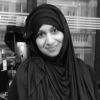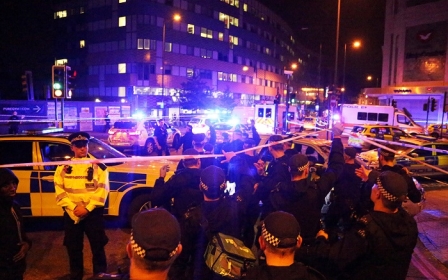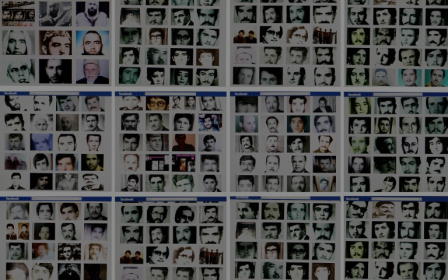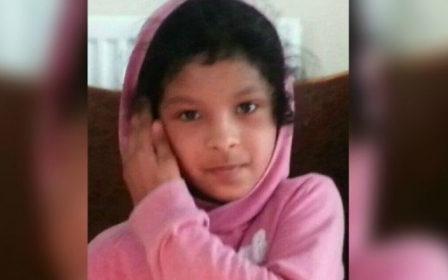I’m a British Muslim and I’m afraid for the first time in my life
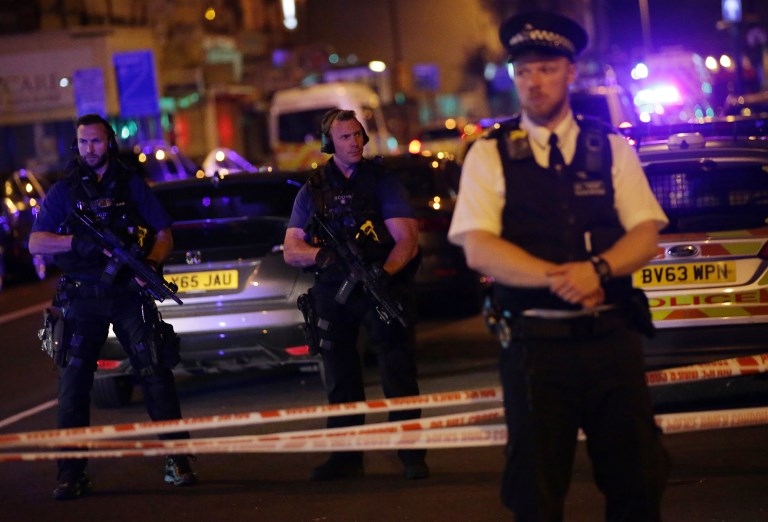
Last week, the bigoted and brutal Islamic State (IS) group blew up the iconic Grand al-Nuri Mosque of Mosul in Iraq and its leaning minaret, showing yet again that extremism has no faith whatsoever.
The terror group, which claimed responsibility for both the Westminster and London Bridge attacks in London and the suicide bombing in Manchester, are trying to create divisions and disunity against Muslims, but they must be seething at the strong and united British community that has come together after each tragic attack over the past three months.
It is a horrible feeling - the sense that you do not know what will happen next, whether you will be safe going to your local place of worship or walking down the road
Ignorant far-right groups and individuals such as former English Defence League (EDL) leader Tommy Robinson need to understand that the Muslim faith has nothing to do with IS and that the majority of attacks that the group perpetrates have been on Muslims in the Middle East, a fact that hardly gets highlighted by the media. During the holy month of Ramadan, IS bombed a busy Baghdad neighbourhood where families were eating ice cream to break their fast, killing 17 fellow Muslims.
The vile terror group claim to be part of a faith which it clearly knows nothing about. However, the rhetoric from the likes of EDL and Britain First, which have an alarming following in the UK, plays directly into the hands of IS. Earlier this month, Robinson spewed his anti-Muslim views on Good Morning Britain, asking Piers Morgan, “What do you know about the Prophet Muhammad?” and waving around a copy of the Quran that left many viewers, including myself, outraged.
However, I would like to educate Robinson, who clearly may not have any idea about the Prophet Muhammad and how he would react to evil. The Prophet says: “You do not do evil to those who do evil to you, but you deal with them with forgiveness and kindness.” These far-right groups inciting hate hold extremists views themselves, yet their faith is never associated with what they do or say and quite rightly so.Muslims deserve similar treatment. You don’t hear any other religions named in the mainstream media to describe terrorists. Why is it that we have to use language such as “Islamic”, “Islamism” or “Muslim” when describing the perpetrators?
Constant worry
The effects of media reports on IS and Muslims has played into the rise of Islamophobia, resulting in the recent Finsbury Park terrorist attack which killed an elderly man and seriously injured 11 worshippers.
In addition, the rise in anti-Muslim hate crimes around the world - including the murder of 17-year-old Nabra Hassenan who was walking home from a McDonald’s in Sterling, Virginia, on 18 June after eating her last meal of the day before starting her Ramadan fast - has left many Muslims extremely upset and concerned.
As a British Muslim myself, I am deeply concerned about the fear that is escalating as a result of anti-Muslim sentiments that are significantly impacting my community. My family lives just half an hour away from Finsbury Park mosque and my father attends the local mosque on a daily basis. During Ramadan, he stays late into the night, returning in the early hours of the morning.
After hearing stories of anti-Muslim abuse outside local mosques and reports of stones being thrown at worshippers as they were leaving night prayer at the mosque my parents attend in Harrow, my family and friends now feel the need to be extra vigilant. I worry for them constantly. Living in Scotland, I am increasingly concerned about the safety of the community and my family who live hours away from me.
My concern is not limited to the Muslim community alone, but also to people of all faiths and backgrounds who have to endure discrimination and vile hate from right-wing groups and those who threaten to harm our peaceful co-existence. This is the first time in my life when I have felt afraid like this.
Not a one-off
As a Muslim woman in hijab, I don’t want to feel that I am most vulnerable in this growing climate of rampant anti-Muslim attacks. It is a horrible feeling to have in your heart, the sense that you do not know what will happen next, whether you will be safe going to your local place of worship for Eid or just walking down the road. This is the first time we have seen police forces deployed outside mosques in order to protect worshippers from potential harm, a fact that truly saddens me.
I do not want my children exposed to anti-Muslim hate in any form and I fear for their future
Two years ago in Scotland, I experienced Islamophobia first-hand when a man started cursing me in front of my children, aggressively blaming me for the terrorist attacks in Europe. I could have said that this man had extremist views himself and was the epitome of extremism as he was ranting about how there should be an “end to all Muslims”. Members of the public told the man to shut up as I tried to walk as far away from him as I could, but he just kept following us and cursing until he finally left.
I was shocked that this happened in front of my children who were all with me at the time. At the time, I thought this incident would be a one off and things would settle down. But I have come to realise that Islamophobia has risen to the extent that more hate crimes are being inflicted on Muslims on a daily basis.
I do not want my children exposed to anti-Muslim hate in any form and I fear for their future, hoping that by the time they grow older, Islamophobia will be a thing of the past.
I want to bring them up in a society that flourishes with diversity, love and respect for people from all walks of life, a society I experienced as a child growing up in London, and that perhaps could still exist with better interfaith understanding.
What we can do
No individual, whether they are in the Middle East, the West or any other part of the world, deserves to be verbally or physically abused or harmed in any way by misinformed individuals. And when these incident do happen, it is paramount to let authorities know.
Many Muslim women who have experienced some level of Islamophobia have been reluctant to report the incidents fearing that they won’t be taken seriously. But these cases must be documented to spur positive change so that the situation does not escalate.
There is no faith that condones these evil, barbaric acts and those who do act upon their own hate-fuelled sentiments are certainly not acting out of faith or commitment to any religion
The media, which is clearly impacting the way Muslims are viewed by the wider society, also has a responsibility to ensure balanced reporting. When reports involve Muslims, there is no need to refer to Islam unless it is actually relevant to the story, just as other religions are not unneccesarily referenced in the media.
In order for us to tackle anti-Muslim prejudice, we need to begin with challenging the rhetoric and language used when describing terrorists in the media. Think back, for example, at The Sun's "1 in 5 Brit Muslims' sympathy for jihadis" headline. We need to challenge anti-Muslim hate groups and, through our criminal justice system, hold individuals accountable for inciting hatred.
Lastly, we need to promote better interfaith understanding through events, open dialogue or even debates aired in mainstream media.
Incidents of Islamophobia have risen. This is a real problem. Innocent people have lost their lives as a result of the sheer ignorance of bigots and far-right rhetoric.
Extremism comes in many different forms. There are those who claim to carry out attacks in the name of religion and wish to harm others, inspired by their own misconceptions. One thing remains true: there is no faith that condones these evil, barbaric acts and those who do act upon their own hate-fuelled sentiments are certainly not acting out of faith or commitment to any religion.
Frustratingly, whether it is through Islamophobic attacks or being held accountable for crimes that we did not commit, it is Muslims who bear the brunt.
We do not expect any innocent member of the public to apologise for the Finsbury Park attack, carried out by a terrorist. All we want is to be reported about fairly, treated equally, given a pathway to tackle Islamophobia head on and to once and for all isolate our faith from the word "extremism".
- Tasnim Nazeer is an award winning freelance journalist, writer and author who has written for a variety of print and online publications including CNN International, The Huffington Post, The Muslim News, Your Middle East, Islam Channel and many more.
The views expressed in this article belong to the author and do not necessarily reflect the editorial policy of Middle East Eye.
Photo credit: Police guard a street in the Finsbury Park area of north London where a vehichle hit pedestrians on 19 June 2017. Muslim leaders said worshippers were mown down after leaving a mosque. (AFP)
Middle East Eye propose une couverture et une analyse indépendantes et incomparables du Moyen-Orient, de l’Afrique du Nord et d’autres régions du monde. Pour en savoir plus sur la reprise de ce contenu et les frais qui s’appliquent, veuillez remplir ce formulaire [en anglais]. Pour en savoir plus sur MEE, cliquez ici [en anglais].


